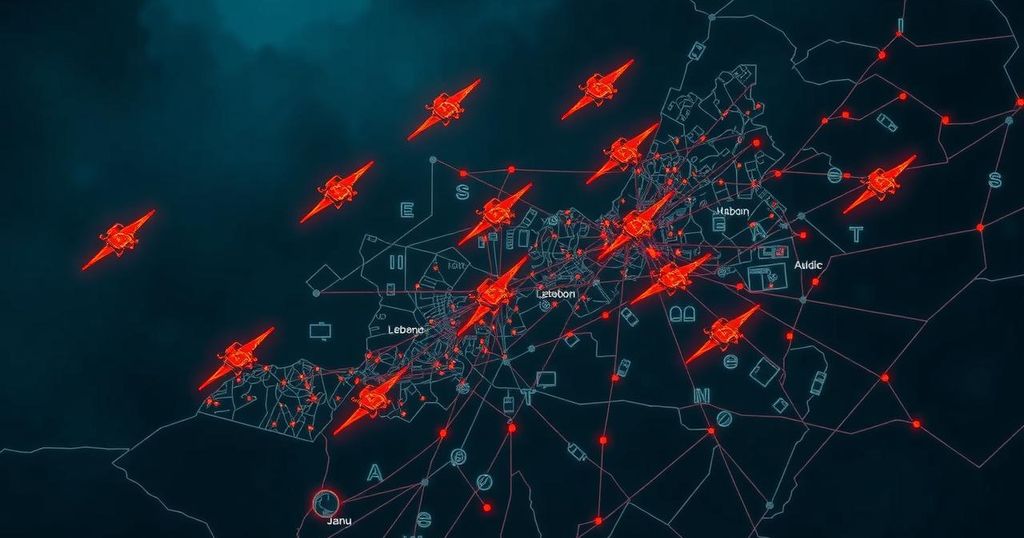The Israeli military’s recent operations in Gaza have resulted in significant civilian casualties with 33 deaths and 156 injuries reported in one day. The ongoing aggression since October 7 has led to over 43,374 fatalities and critical infrastructure destruction. Reports also indicate continued violence in Lebanon, underscoring the broader implications of the conflict.
The Israeli occupation has intensified its military operations in Gaza, resulting in catastrophic civilian casualties. Recent reports from the Palestinian Ministry of Health indicate that three massacres occurred within a 24-hour period, leading to 33 deaths and 156 injuries. Additionally, the ongoing Israeli aggression has claimed the lives of 43,374 individuals and injured over 102,261 since October 7, 2023. Access to victims remains obstructed due to destroyed infrastructure, amplifying the humanitarian crisis in the region. The situation in the northern Gaza Strip has deteriorated severely, with all hospitals rendered non-operational, and critical services disrupted. The government media office describes the area as a disaster zone, emphasizing the blockade on essential supplies that has deprived 400,000 civilians, including many children, of basic necessities. The Israeli military’s actions are characterized by efforts to starve the population, a tactic that has attracted international scrutiny. Israel has also declared the termination of its agreement with the United Nations Relief and Works Agency for Palestine Refugees (UNRWA), further complicating humanitarian efforts in the region. Concurrently, a diplomatic effort involving Hamas and Fatah is underway in Cairo, aiming to establish a governance framework for Gaza, although specifics remain undisclosed. On the Lebanese front, Israeli military claims of drone interceptions have heightened tensions, with continued clashes reported along the borders. The Israeli armed forces have acknowledged injuries to their troops, with numerous personnel affected on both the Gaza and Lebanese fronts. Furthermore, Lebanon’s Prime Minister has condemned the continuous aggression, urging the international community to intervene and uphold humanitarian standards. The situation remains volatile, with Hezbollah reportedly conducting drone strikes against Israeli military positions, indicating a broader regional conflict. Each development underscores the urgent need for international diplomatic engagement to address the escalating violence and its humanitarian implications.
The current escalation in the Israeli-Palestinian conflict has its roots in long-standing territorial disputes and intensified military confrontations. Since the onset of hostilities on October 7, 2023, a significant loss of life and extensive injuries have been reported, predominantly among civilians. The situation is exacerbated by blockades that prevent the flow of humanitarian aid, leading to dire living conditions for affected populations. This conflict not only affects Gaza and Israel but also involves neighboring regions, notably Lebanon, contributing to a complex humanitarian crisis that demands global attention and intervention.
In summary, the Israeli occupation continues to inflict severe humanitarian consequences in Gaza, exacerbating an already dire situation marked by high civilian casualties and a crippling blockade. The backdrop of these military operations highlights the urgent need for international intervention, fostering dialogue among conflicting parties. The geopolitical implications extend beyond Gaza, affecting neighboring regions and emphasizing the necessity of a comprehensive approach to restore peace and ensure the protection of human rights.
Original Source: www.dailynewsegypt.com






